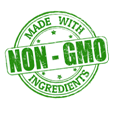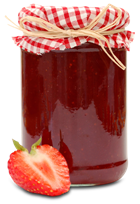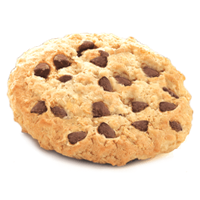15 Popular Food Product Claims
Consumer’s attitudes towards the nutritional aspect of the foods and proper eating habits are increasing rapidly. Food labeling is one of the most important factors affecting for the purchasing decisions of the consumers.
Many food products have more than one label claims to attract health conscious consumers. For instance, many biscuits claim to be organic, gluten free, have 0% artificial preservatives and 0% artificial colour. Such biscuits are usually made from organic, gluten free grains; they may not have sucrose but can have jaggery or dates as its ingredients that contribute to sweetness.
3 commonly misinterpreted claims
01. Low Sugar
02. Light Oil
03. Low Fat
Here are some popular claims made on food packaging with their meanings:
1. Trans Fat Free – The Trans fat is less than 0.2 gm per serving of food. For instance, Trans fat free muesli
2. Saturated Fat Free – The saturated fat does not exceed 0.1 gm per 100gm or 100ml of food. For instance, saturated fat free breakfast cereal
3. Cholesterol Free – Plant based oil may have been used in the formulation as they do not cholesterol.Cholesterol is usually found in animal fat. For instance, cholesterol free refined oil
4. Low Fat Cream – It contains minimum 10% fat. It can go up to 40%.
5. Organic – At least 95% ingredients are organic. Rest 5% of ingredients can be natural or non- organic. For instance, organic RTE meals
organic RTE meals
6. Sugar Free – The food does not have sucrose but can have added sweetener such E953 (Isomalt) or E 965 (i) (Maltitol), artificial vanilla flavour, etc. For instance, 0% sugar cookies
7. Gluten Free – The food product does not contain gluten grains such as wheat, barley, rye or their flours as an ingredient. Also many food products are naturally gluten free but still have such claims on labels because consumers can be confused as to which products contain gluten. For instance, there is no difference between “Cow Milk” and “Gluten free Cow Milk”.
8. No Preservatives – The product may not have artificial preservatives but they can have natural preservatives such as rosemary extract. Also, the ‘no preservatives’ claim does not ensure that the food product is free from food additives. The food product may contain food additives such as ascorbic acid (an antioxidant), Pectin (a stabilizer) or nature identical flavoring substances. For instance, no preservatives jam.
“Many food products are naturally gluten free but still have such claims on labels because consumers can be confused as to which products contain gluten. For instance, there is no difference between “Cow Milk” and “Gluten free Cow Milk”.”
9. Allergen Free – It does not contain any of the allergen foods as an ingredient. Top eight food allergens are milk, eggs, peanuts, tree nuts, fish, shellfish, soy and wheat. For instance, allergen free coconut water

10. High in Fiber – The product may claim to be high in fiber but one should note that it takes a lot of fat to hold fiber molecules together. So a consumer must check the fat content too before purchasing the food product. For instance, High Fiber muffins
11. Light Oil – Some oils are easily absorbed than others but 1gm of any oil will contribute to the same amount of calories, i.e. 9kcal (averagely)
12. Low Fat – The food product may have fat added in fewer amounts. But these products often use emulsifiers, thickeners and other fat replacers which may not be good for health. For instance, Low fat malt based food
13. Only x% sugar – The food packaging when claims to have only ‘x’ amount of sugar, it means that the product contains ‘x’ amount of sucrose. These products do not list the exact amount of other sugars added such as caramel, fructose, glucose, maltose, etc. These sugars do contribute to the calories too.

14. Non- GMO ingredients – The food product does not contain any genetically modified ingredients. For instance, Tomato ketchup made with non GMO ingredients
15. Fortified with _ _ _ _ _ _ – The end food product has been fortified with the listed nutrients, in accordance with the minimum and maximum limits set by FSSAI. For instance, pasteurized milk fortified with Vitamin A, K, D&E.

